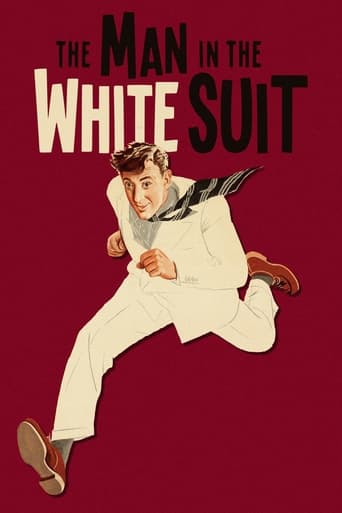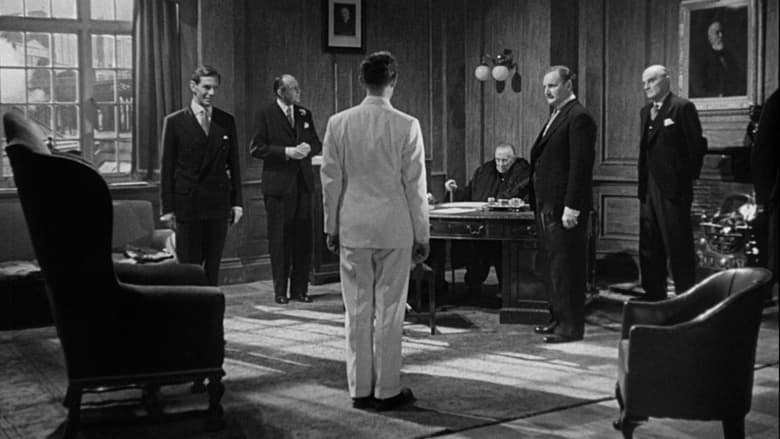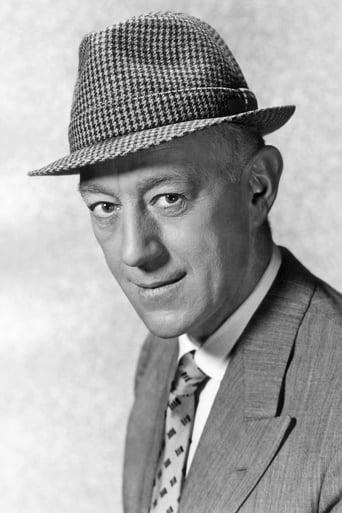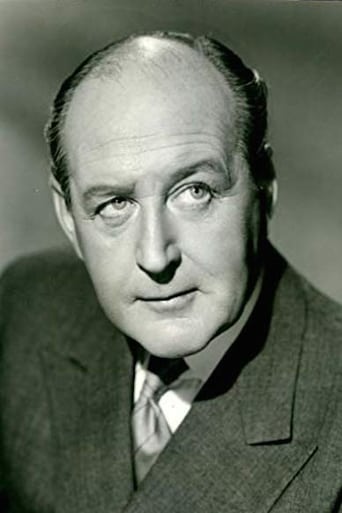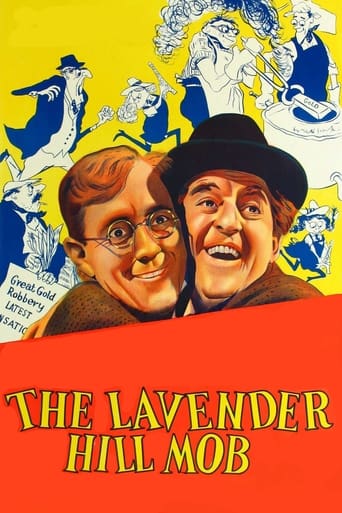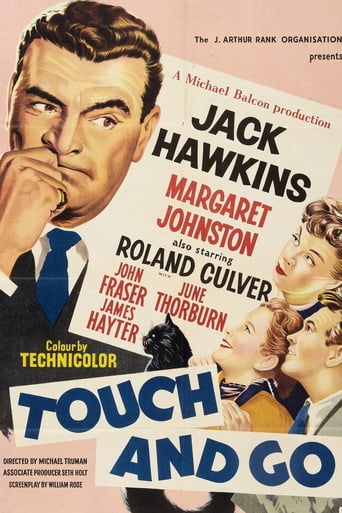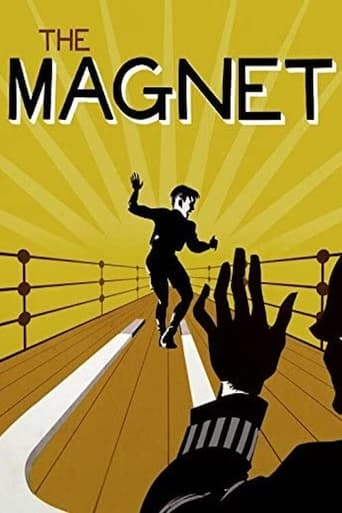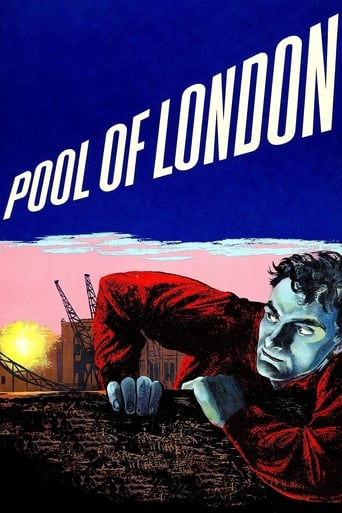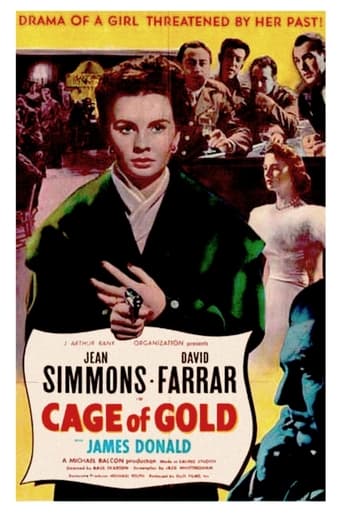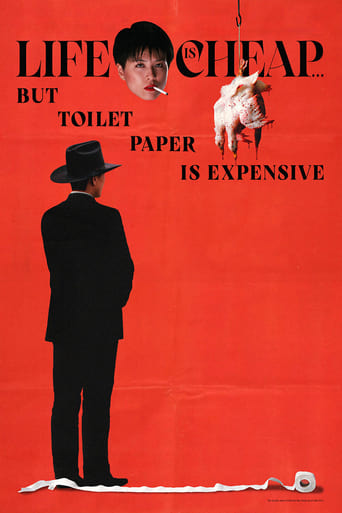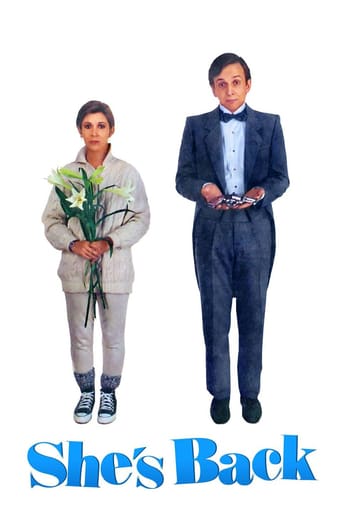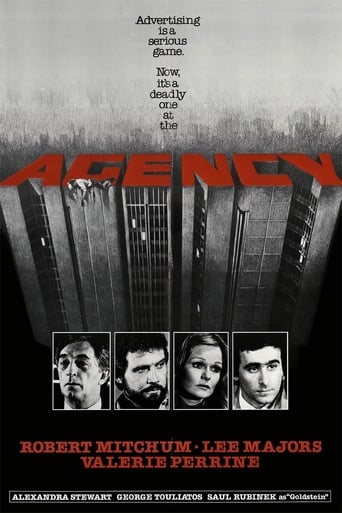The Man in the White Suit (1951)

The unassuming, nebbishy inventor Sidney Stratton creates a miraculous fabric that will never be dirty or worn out. Clearly he can make a fortune selling clothes made of the material, but may cause a crisis in the process. After all, once someone buys one of his suits they won't ever have to fix them or buy another one, and the clothing industry will collapse overnight. Nevertheless, Sidney is determined to put his invention on the market, forcing the clothing factory bigwigs to resort to more desperate measures...
Watch Trailer
Cast


Similar titles
Reviews
This Movie Can Only Be Described With One Word.
The story, direction, characters, and writing/dialogue is akin to taking a tranquilizer shot to the neck, but everything else was so well done.
Mostly, the movie is committed to the value of a good time.
The storyline feels a little thin and moth-eaten in parts but this sequel is plenty of fun.
****User reviewer Robert J. Maxwell ("A lesson in economics and understatement", Robert J. Maxwell from Deming, New Mexico, USA, 26 September 2005) has interesting observations about the editing. Meanwhile, l_rawjalaurence ("Frenetic Satire at the Time of the Festival of Britain", l_rawjalaurence from London, 26 April 2014) has a great review. Also, blanche-2 ("Timely message from the wonderful Ealing Studios", blanche-2 from United States, 19 March 2013), while properly concerned not to come off as a "conspiracy theorist", draws good parallels between this film and other historical events.****"The Man in the White Suit" (1951, Alexander Mackendrick), an economic satire, is comedic despite a dystopian plot. The story is a nightmare, as a solitary visionary is prevented from enlightening a community by the community itself. However, the tone is light. There are many superb British character actors backing up the principals. The pace is frenetic and it is interesting throughout.Alec Guinness is the determined young chemist (and visionary) Sidney Stratton. Sidney prefers to work for textile companies, even if it means accepting low-wage work. During Sidney's off hours he sneaks into the company's chemistry laboratory to tinker with his new invention on the sly. So much has changed since the mid-twentieth century. For one thing, there used to be many people employed at a mill, because automation and outsourcing had not yet arrived. Also, labor unions once were formidable, and its leaders actually worked for the rank and file. This film's narrative could not be set in the modern era because today's corporate decision-making is always top down and formulated behind closed doors.Armed with cutting edge science (e.g., he is an expert on "long molecules"), Sidney pursues his dream of inventing a new cloth that is perpetually wear and stain resistant. Unfortunately, the mid-level and senior-level management for the (current) company that employs him take issue with his research being conducted at company expense. Sidney endures a great deal of oppression before he finally gets the opportunity to pitch his radical scientific ideas to Alan Birnley (Cecil Parker), the CEO of the Birnley mill. Stanley owes his good fortune to Alan's daughter Daphne, (Joan Greenwood). After she almost runs him over with her car the two have a wonderful conversation with Sidney laying in the dusty English street discussing science to her as she looks down at him. Once Stanley has permission to complete the research (which is fraught with explosions comparable to hand grenades), he produces the fabric and then manufactures a stylish white suit that demonstrates the new material.With Sidney on the cusp of fame, Fate intervenes with a pair of blows. The first is the wealthy business elites (i.e., capital) who want his invention suppressed, fearing it threatens their perpetuity. The second is Sidney's dismal realization that even his presumed friends in the company union (i.e., labor) prefer his invention shelved out of concern it threatens their jobs. With nearly the entire community against him, Sidney manages initially to avert physical harm thanks to the inconsistent Daphne and a young mill girl (Charlotte Mitchell). The young girl has limited screen time but can be regarded as Sidney's Guardian Angel. The gears of oppression continue to grind Sidney down until the breathtaking conclusion when the inventor is surrounded by the enraged community on a dark street at night.Visually, it always looks great. The Oscar-nominated screenplay (by Roger MacDougall, John Dighton and MacDougall's cousin, Alexander Mackendrick) is fast-paced and vigorous. The always excellent Cecil Parker is convincing as a mill boss who is torn between progress and the demands of the (corpse-like) Sir John Kierlaw (Ernest Thesiger), who is a leader of what we might call the Illuminati. Alec Guinness turns in another excellent performance as the young inventor. Once again, Guinness inhabits his role, infusing uniquely British mannerisms, stamping his ownership of the character. He sure makes it look easy.Joan Greenwood's Daphne is one of the great pleasures of the film. To modern audience, she may come as a casting surprise. While attractive, she is not glamorous. A lot of film honchos would have been tempted to cast a female lead who appears to be more obviously a physical match for Guinness. However, at Ealing Studios they knew the allure of her (now-legendary) voice and diction. Her purring voice is deep but not real husky. It is a perfect antidote to Guinness's obvious charm when the two are getting intimate."The Man in the White Suit" is a pleasure that draws many parallels to the modern era. Cinephiles should see it in a revival theater, making sure to avoid all chemistry laboratories getting to one.
The obvious parallels are that that this is a bright film that never unravels is never once dirty and has stood the test of time. But pity they can't get back to the drawing board and make some more like it because they're now badly needed! One of Ealings handful of super-classics I saw it so often when younger that I got fed up of seeing it – but saw it last night for the first time in over five years and it's still as bright as a button.Idealist fabric technician Alec Guinness invents a new material that will never break, dirty or need replacing as much – much to the concern of the capitalist mill industry owners and the factory wage-slaves dependant on being paid to work for them. Uproarious comedy ensues as both sides see they have to thwart his plans of publishing the Great News. The workers were concerned "every mill in the country will go" – they did anyway so the bosses could make much greater profits from Asian wage-slaves instead. There's so many highlights it's hard to single out a few: the manic opening music for the credits is still riveting; the trials (and tribulations) Guinness had developing the volatile formula in the lab; Capital and Labour looking suspiciously at each other at Cecil Parker's mansion; Joan Greenwood at least finding out about true love; Ernest Thesiger's drawn out laugh or being bundled into the back of the car; the little girl lying to help Guinness escape; but the key scene was Edie Martin carrying her bit of washing in the dark bitterly asking Guinness "why can't you scientists leave things alone" – a poignant thought-provoking moment that stopped him dead in his tracks: comedy over, his dreams in pieces.It's so rich in plot, characterisation, brevity, wit and charm I used to think it was pity a sequel was never made – but although Ealing liked ambiguous endings bless their cotton socks they didn't Do sequels. It's a stand alone classic, almost perfect in every department, a masterclass of how it should be done.
An Ealing Studio's satire on capital and labor's aligned suppression towards the revolutionary invention of an unbreakable and dirt-free fabric. A Cambridge graduate (Guinness) is debarred from a short-sighted garment manufacturer (Gough) to proceed his research, but with the help of another industrialist's daughter (Greenwood), he is financed by her father and unprecedentedly invents the fabric, which he thinks can benefit all mankind but both the workmen and their high-handed authority figures say otherwise, then a series of cat-and-mouse games ensues until an Achilles heel of the magical fabric pops out of left field ends the farce with everyone is happy except our protagonist. Running snappily around 85 minutes, the story is unfolding concisely and takes an interesting turn after the cringe-worthy sequences of a nobody requests to meet an affluent personage but is routinely fended off by a hoity-toity butler. Guinness extracts a creditable poise of innocence and innocuousness besides a nerd's impulsion of his scientific pursuit, and one can read more through his inscrutable eyes. Greenwood is the darling girl here, clears barriers for Guinness when he is in trouble, a rarefied paragon from the upper class, even single-handedly engineers a persuasive feeler in the crucial moment. Vida Hope belongs to the opposite working class, who holds a secret admiration toward Guinness, and her rough and strong-arm simplicity is spot-on. Cecil Parker has a comical presence as an oscillating pushover, and a vulture-alike Ernest Thesiger has a grandstanding entrance as the mogul and decision-maker in the business. Director Mackendrick and DP Slocombe utilizes a great contrast of Black & White cinematography to accentuate the luminous white suit, particularly in the chase set pieces. THE MAN IN THE WHITE SUIT is a prescient allegory tale which pinpoints the discovery of something new will upset the delicate market and self-seeking masses, it leaves a bitter taste for this technology-advanced era and meanwhile, it is an ingenious comedy deserves multiple watches anytime, anywhere.
Just two years after he took everyone's breath away playing eight characters in Kind Hearts and Coronets (1949), Alec Guinness continued his successful relationship with Ealing Studios with another iconic performance as eccentric inventor Sidney Stratton in The Man in the White Suit. After being fired from numerous mills throughout the north of England for his expensive research into an everlasting fibre, Sidney joins Birnley Mill. Posing as an unpaid researcher, he makes his breakthrough and creates a fibre that repels dirt and cannot be broken, and makes himself a white suit out of it. Seeing the potential collapse of their industry, capital and workers alike join forces to bring Sidney down.While watching The Man in the White Suit, it would be easy to pose the question of what exactly is the point of this movie? Ealing had common themes of anti-establishment running through their films of this era, and here the big bosses are shown as pompous, cigar-smoking buffoons, clambering over each other in blind panic. Yet with the invention of Sidney's white suit, the industry will implode, taking down thousands of the working class with it. This is exemplified when Sidney, running through the streets in his luminous white suit to escape the mob, comes across his poor landlady who has been letting him live there rent-free. She sees Sidney's new invention and says "what about my bit of washing when there's no washing to do?" The working class will pay the biggest price if the white suit breaks out.So, the point is not to make a point, it's to make you think about technological progression. The 40's saw the emergence of the H-bomb that almost single-handedly ended World War II. This was initially seen as a good thing and the ultimate protective weapon. Then other countries began manufacturing them, and the threat of nuclear war prevailed throughout the next few decades. It seems that following technological innovation blindly could have devastating consequences. Yet Sidney goes about his business with a demented determination, initially without a thought about the potential results of his actions. The fact that he is the film's protagonist and (anti?)hero does cause some confusion, but in Guinness's expert hands, Sidney is a delight to watch and even root for.The supporting cast are strong too, especially Joan Greenwood as Daphne Birnley, the daughter of the tycoon that runs the mill (played by the also excellent Cecil Parker). Her voice is so sultry and her face so beautiful that it's hard to take your eyes off her. The scene in which she tries to seduce Sidney at the request of the united bosses is an acting lesson in subtle sexuality. However, in the context of Ealing's output of this era, The Man in the White Suit falls somewhat short. It's extremely slow-paced and talky, and isn't particularly funny. But it's a clever-clever satire that was way ahead of its time, expertly directed in an unfussy fashion by Alexander Mackendrick.www.the-wrath-of-blog.blogspot.com

